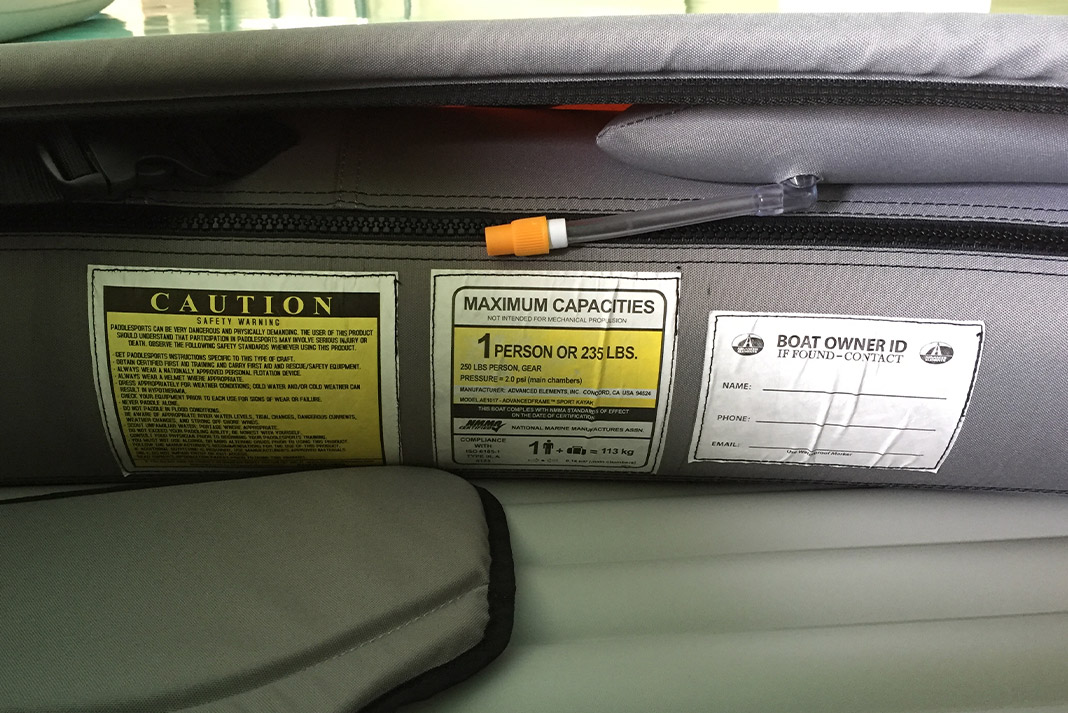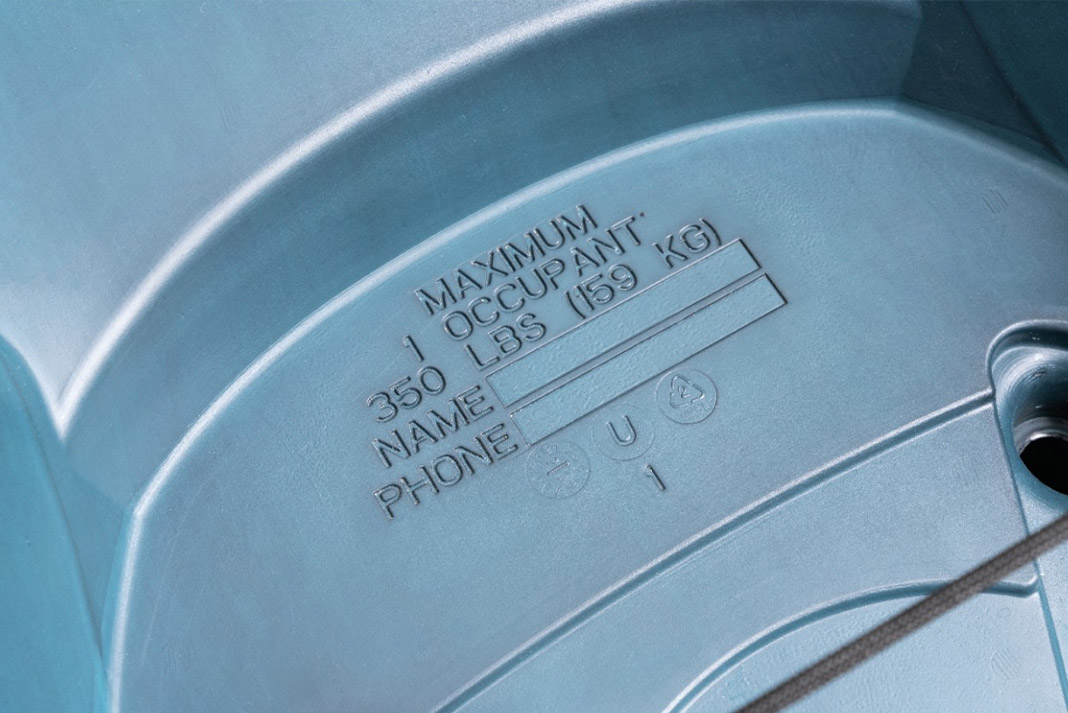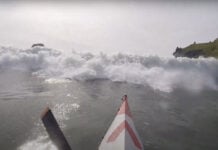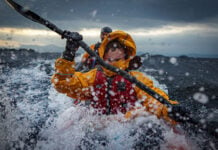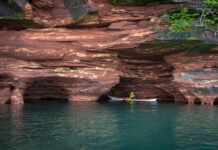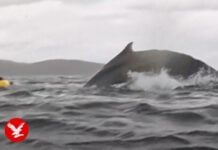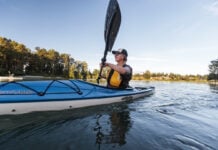An empty, drifting kayak is an eerie sight, and it raises some difficult questions for the finder: Who does the kayak belong to? Where is the paddler? Are they in danger? It can be tough to track down the answers without a great deal of time and expense, leaving first responders unsure what measures to take. So, how can paddlers help out their potential rescuers? Affixing an “If Found” sticker or badge offers a straightforward solution.
[ See also: Water Sports Foundation Encourages Retailers To Remind Customers About Life Jacket Use ]
The simple safety feature saving lives and dollars
Reports of unmanned paddlecraft immediately trigger a search and rescue response from the U.S. Coast Guard, which says each hour of searching costs upwards of $113,000 USD. While it’s comforting to know help is on the way for paddlers in distress, time and money spent searching for people in the water when no rescue is needed is a massive waste and takes resources away from other emergencies. And it’s entirely preventable.
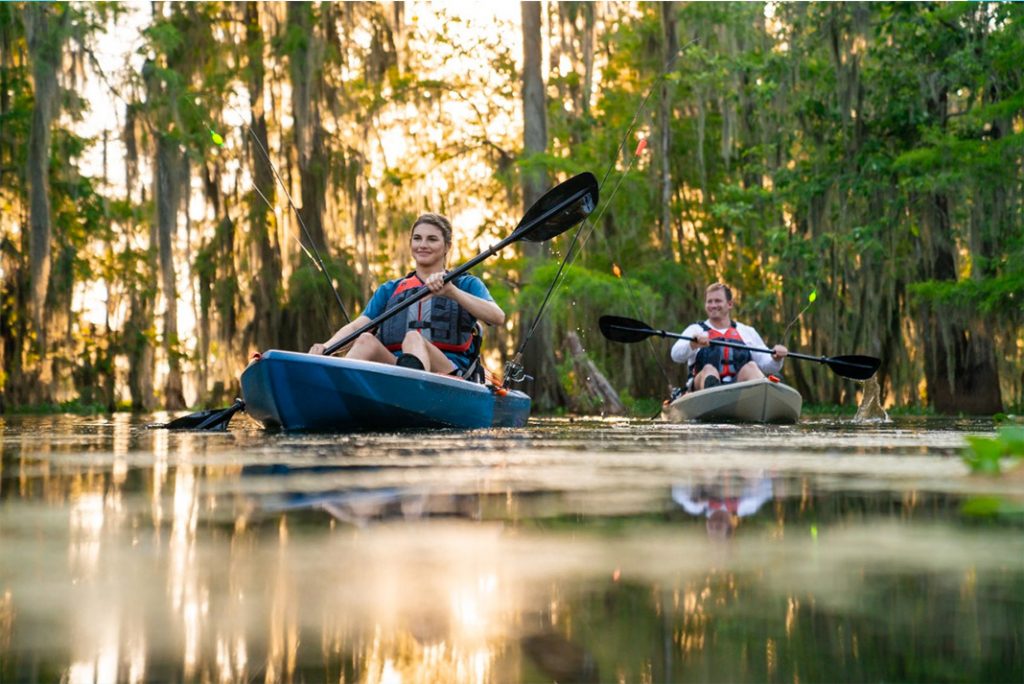
For years, the U.S. Coast Guard and Paddle Canada have been providing free “If Found” stickers to recreational paddlers. The stickers are brightly colored, waterproof and have space to write a name and two phone numbers. If a kayak or canoe is found with no paddler present, SAR teams can call to confirm whether or not a rescue mission is required. But is the sticker campaign working?
The Canadian Coast Guard says it doesn’t keep statistics on SAR cases originating from empty personal watercraft, but USCG Northeast reported spending over $400,000 USD over just one holiday weekend in 2019 for paddlers that weren’t actually missing. With increasing numbers of new recreational paddlers who may not be aware of the importance of labeling their boats—or, perhaps, how to properly secure boats on shore—kayak manufacturers are taking the matter into their own hands to save money and direct rescue efforts towards those who are truly in need.
Boat manufacturers get on board
Inflatable kayak and SUP manufacturer Advanced Elements has been incorporating “If Found” badges into their products for years.
“It’s such a no-brainer thing to do,” said President Clay Haller. “We just add [the badge] next to the capacity plate.”
Lifetime Products Inc., which manufactures kayaks under their own and Emotion brand labels, began embedding contact information plates into their plastic boats in late 2019.
“We’ve only been doing this for the past 12 months,” said Steve Olsen, Lifetime’s water sport Product Marketing Manager. “I actually read a short piece in Paddling Magazine’s 2019 Buyer’s Guide about how much money the Coast Guard spends on searches for calls about unmanned kayaks and figured we could do something to help.”
Both manufacturers say adding contact labels costs very little. Haller estimated Advanced Elements spends less than $0.20 per boat for a badge.
Educating entry-level paddlers
Recreational canoe and kayak sales are booming, in part due to physical distancing measures and closed indoor spaces in response to the COVID-19 pandemic. Suppliers and retailers have struggled to keep up with demand. According to Olsen, the decision to add contact labels came at the perfect time.
“We’ve seen an explosion in our business because of the pandemic, and we cater to the entry-level paddler who may not be aware of how to be safe on the water,” Olsen said. In addition to the contact labels, Lifetime and Advanced Elements also both include safe boating pamphlets with their owner manuals. While rules and regulations vary from state to state and from province to province, Haller says the basics always apply.
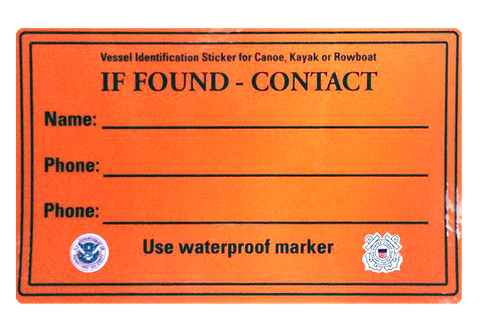
“A PFD is obvious,” Haller said. “But people getting into it may not understand the importance of certain safety measures. Manufacturers are somewhat responsible. You’re putting a product out there, and keeping people safe is also about making sure they have a good experience,” Haller said. “One bad experience and it’s ‘that’s the last time I’m doing that!’ but it’s pretty easy to give people the basics.”
Olsen echoed this statement.
“We want people to have a good time and keep getting out there,” Olsen said. “Including safety information is a big deal for us.”
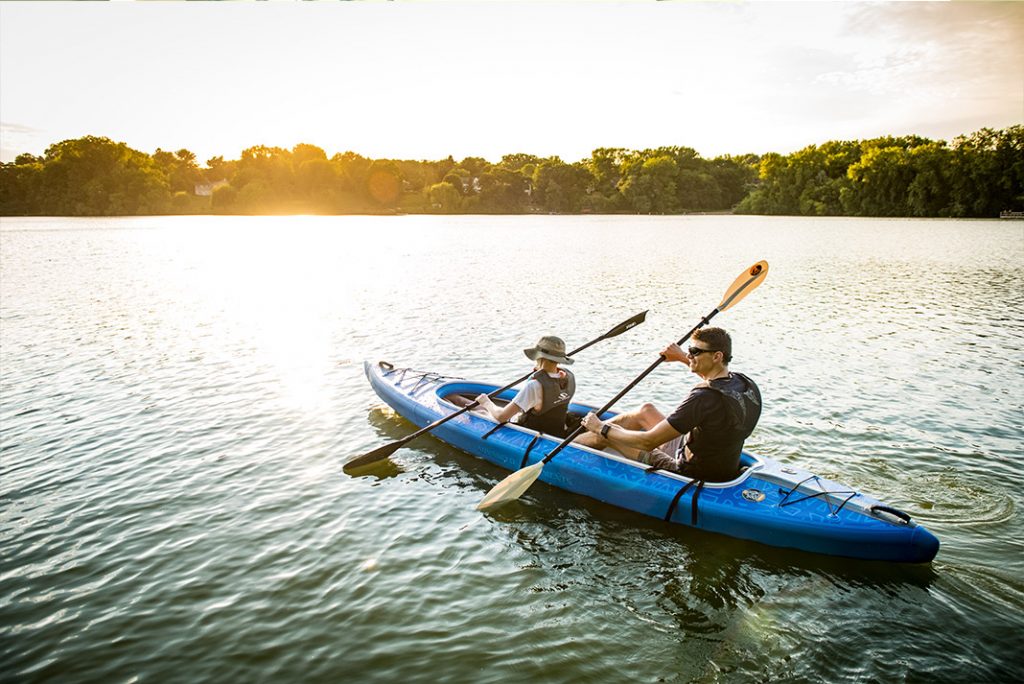
There’s lots of reasons to label your boat
A lost boat marked with contact information can save time, money and even a life, whether the reason is catastrophic mishap or common mistake. It’s as easy as grabbing a Sharpie and scrawling some numbers inside the hull. By providing customers a space to do so, Lifetime and Advanced Elements are eliminating a lesson most paddlers might only learn through unfortunate circumstance. And saving the Coast Guard money and valuable time in the process.
Lifetime Products Inc., which manufactures kayaks under their own and Emotion brand labels, is one of the latest to embed contact information plates into their plastic boat hulls. | Feature photo: Courtesy Lifetime Products Inc



